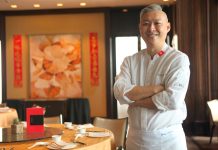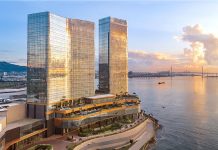“Honestly, I’m not happy with the image of the Philippine National Police (PNP) now,” says Gen. Ricardo Marquez, who, just weeks before this interview, was appointed Chief of the PNP, or more formally, PNP Director General.
“There are some accomplishments that have put the PNP in a good light, like when we did the security for the visit of the Pope. But what I wish for is that every day, the ordinary citizen would see our police officers as their big brothers and big sisters. I would like to see the members of the community treating the police as their own, as part of the community. Our biggest challenge is to regain the trust of the community.”
Marquez is a career officer who has been deeply involved in operations since graduating from the Philippine Military Academy. Upon his appointment, he spoke about “going back to the basics” of policing. “The backbone of policing is patrolling, pounding the beat. There is no better way of serving the people of the community than by being present. We need to put our officers back on the streets. They need to be visible. When crime happens, citizens should not have to go to the police station to report it; they should be able to find police officers out on their beats. The ideal situation is for police officers to be able to work directly with the community, with little coaching from headquarters. Over time, this creates a bond between the police and the community.”
We asked if the PNP has the numbers to achieve this. “In every police department in the world, numbers is a challenge. But we can speak of priority: crime-prone areas, areas of convergence such as bus stops, MRT stations, markets, and churches. Only by doing this can our commanders on the ground justify how many patrolmen they need. The national ratio of policemen to the general population is 1:800; that’s 160,000 policemen for slightly over 100 million Filipinos. In Thailand, for example, it’s 1:325, or 200,000 policemen for a population of 65 million.”
Mobility is also an issue, as fewer officers means they have to cover larger areas. “We are currently delivering one car per police station nationwide, but obviously that’s not enough. The local government units are augmenting this, but it’s an issue. We need to develop a formula to determine, for example, how many people can be served by one patrol car. What is the practical radius? We need to allocate resources and people in a more scientific way. The PNP cannot be said to be modernized unless we address this very basic problem of resources.”
…
In early press conferences, Marquez said that his personal aim was to be a “father” to all members of the PNP. He explains that this statement has to do with making sure there is no favoritism in the PNP hierarchy. Favoritism has been a frequent criticism of the PNP. “The President clearly said there should be no more ‘bata-bata’ (favoritism). The officers of this organization come from many different sources. Some are from the Philippine Military Academy, some rose through the ranks, some are graduates of the Philippine National Police Academy. We are only human, and Filipinos tend to be so clannish, so whoever is in power might tend to favor his own kind. My objective is to support everybody equally, especially the lower ranks and junior officers. They are the most vulnerable, and needing of support. The senior officers can mostly take care of themselves.”
Director General Marquez believes that good results are not enough. “We cannot have officers violating procedures and resorting to shortcuts. We cannot call ourselves professionals, just because we achieved our targets. The way we achieve our results is just as important.”
—
New PNP Chief Director General Ric Marquez shares more about his plans as the head of the police inside Asian Dragon Magazine’s September-October issue. Grab your copy from all leading bookstores nationwide or purchase the issue from the Asian Dragon Magazine App, free to download on Google Play Store, iTunes, and Amazon.
[Photographs: Wig Tysmans]






































